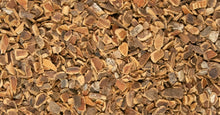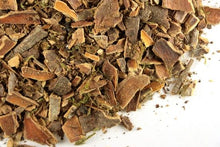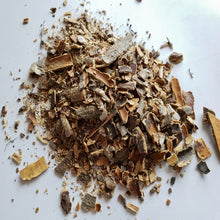Cascara sagrada (Rhamnus purshiana) is a shrub native to western North America whose bark is processed for medicinal purposes. Cascara sagrada contains compounds called anthraquinones that have powerful laxative effects.
Cascara sagrada is primarily used to treat constipation. The anthraquinones contained in the bark inhibit the absorption of water and electrolytes in the intestines. Because of this, stool volume increases as it absorbs the excess water, which increases pressure within the intestine. This stimulates muscle contractions in the colon. Cascara are often said to include the treatment of gallstones and liver disease.
As with most herbal laxatives, it can vary from person to person, but if often takes six to 12 hours. When used as a laxative, the appropriate dose of cascara sagrada is typically considered to be the smallest amount required to maintain soft stools.
Dosages that have been studied in scientific research for constipation include:
-
One cup of cascara sagrada tea per day created by steeping two grams of finely chopped bark in about two-thirds of a cup of of boiling water for five to 10 minutes and straining this mixture before drinking.
-
For constipation: 20 to 30 milligrams of the active ingredient (hydroxyanthracene derivatives) per day.






